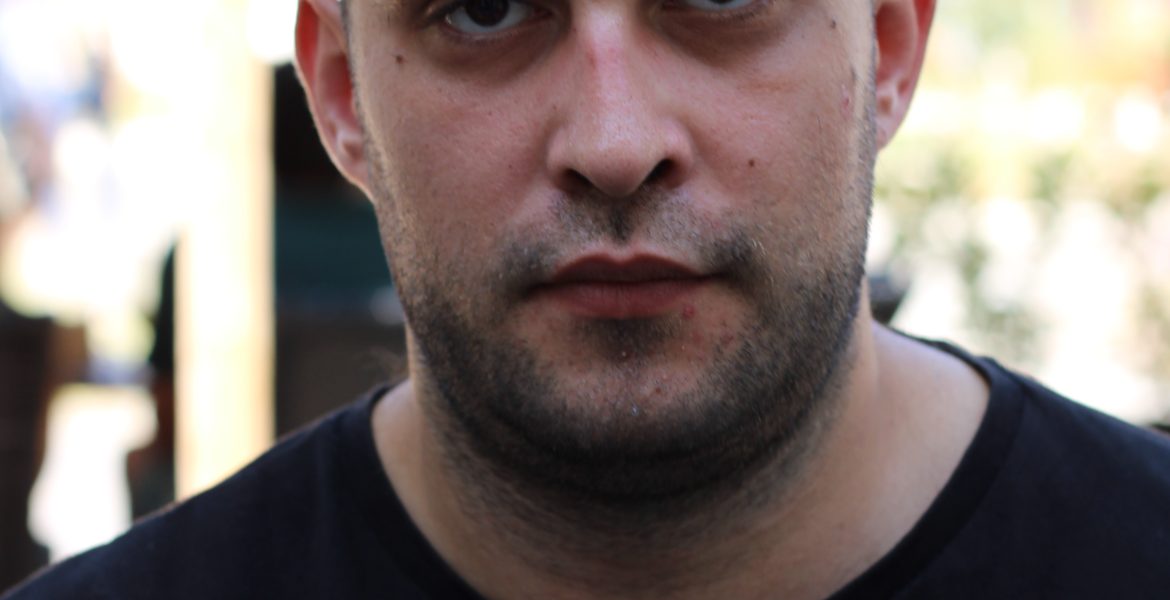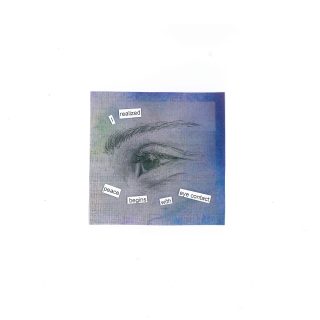Do you know letters of self-compassion?
We are not talking about goodbye letters of authors parting with their identities and personalities they inherited nor about notes about the end of social and political systems that authors blindly believed into.
We are also not talking about fragmented pseudo dramas in which the ego and superego are substitutes for awareness and morality.
Unfortunately, we are also not talking about naïve, or allegedly naïve exaggerations in (self-) accusation in a process in which there is neither salvation nor liberation, especially given the fact that these are misdeeds that are not measurable based on the experience of others.
We are talking about self-compassion letters that a person writes not with the intention to forgive themselves, but rather with the intention to neglect the possibility of guilt and establish a system and method in which they will easily overlook their numerous misdeeds, trying to minimalise, dispute, ignore them, and then continue doing other things, such as promoting their book.
The greater the possibility of promoting works in the public, in the company of the well-educated and wise, and truly morally and intellectually apt persons, the higher the chances that the readers will save themselves or free themselves from a potential burden imposed by a people in the name of the people. This also applies to cases in which the author does not wish such a salvation or liberation, since they are denying the sins and misdeed. As a result, the audience has access to books of authors who neither wish nor are able to forgive themselves the misdeeds they committed, since these are not misdeeds or crimes in their opinion, but something completely different: heroic acts, for example.
Valentin Ćorić is the author of such an autobiography. In a previous life that he is saying goodbye to, the life in the prison, to which he was sent by the International Criminal Tribunal for the former Yugoslavia, Ćorić was an official of Herceg-Bosna, one of the persons convicted of a joint criminal enterprise. Ćorić is one of many persons that have not understood why they are accused of crimes, and his argument was completely clear: he is no way responsible for murders, detention camps, prosecution, deportations, displacements, rapes, forced work or any other violations of the Geneva Convention. Ćorić therefore spent 16 years in blissful ignorance regarding his responsibility, suppressing the misdeeds that he believed to have been invented. During the proliferation of his ego and superego, substitutes for awareness and morality, Ćorić did not give up: he was seriously writing an autobiography that was supposed to be similar to a memoir, since it was intended to contain letters of self-compassion towards some other, invented character – the one that in Ćorić’s world – was invented by the ICTY.
Valentin Ćorić will write about this at length, trying to minimise and deny any fault, believing that it is just another invented personality that the radical and extreme right-wing politicians will glorify, so that there is no need to forget the history of such a personality. Some representatives of the Catholic Church in Croatia and Bosnia and Herzegovina, but also individuals from the political life of the country, such as Dragan Čović, the President of HDZ BiH, supported such an act. Search for the autobiography ”In vino libertas” of Valentin Ćorić, and get an insight into the pseudo literary life of an invented personality that was actually convicted to a 16-year prison sentence for a joint criminal enterprise.
Another example of a case in which the reader re-boards the ship of salvation or participates in the liberation battle of a real and life-like personality is the promotion of the work about the Second Squad of the Brigade from Šekovići. The publication ”War Path of Troopers and Special Police Forces” by Ljubiša Milutinović was promoted in many cities, and its promotion in Belgrade took place at the premises of the Ministry of Defence.
It is intriguing that this publication neglects the fact that some members of the above named brigade participated in the commission of genocide in Srebrenica. It seems that efforts are made in order for this path of troopers and special police forces to be forgotten, ignored, declared non-existent and invented, so that future generations would remember a revised history and so that the current policy regarding Srebrenica genocide remembrance among the Serb political corps would stay intact. This is also the reason why Svetozar Andrić, a former general of the Army of Republika Srpska, spoke during the promotion of the publication. Since his speech is available and was published in the form of a video as well as, and since Andrić is accusing NGOs of fighting against him and Republika Srpska, let us remind ourselves what this is about. Seven days prior to this, the Humanitarian Law Centre filed a criminal complaint against Svetozar Andrić, a former general of the Army of Republika Srpska and published his file.
”Evidence presented in this file shows that, in May 1992, when Andrić ordered ”the displacement of the Muslim population” from Zvornik municipality and establishment of the detention camp Sušica in Vlasenica, members of the Birčanska Brigade, independently or in cooperation with other military and police units, committed numerous crimes in the zone that the brigade was responsible for.
According to the Humanitarian Law Centre, the file also includes evidence on the role of Svetozar Andrić in the genocide committed in Srebrenica in July 1995. It should be recalled that Andrić is currently a high-ranking official of the political party Srpska napredna stranka. It is therefore not strange that the promotion of this publication was also attended by Danica Grujičić, the Minister of Health of the Government of Republic of Serbia, and by two employees of another Serbian ministry.
There is no doubt that the media in their uncritical reporting have contributed to a return of the above mentioned actors to the political and public life in this region. There is also no doubt that the authorities and representatives of the political leadership, political parties and their representatives, have contributed to this as well. However, it is unknown what is the next step in the process of facing the past – the promotion of such memoirs among children and youth, making them part of the official history curriculum, or a complete disregard for such a publication in the society and public-at-large? There are, of course, court proceedings and lustrations as well as criticism of state and political processes for designing a remembrance policy that can contribute to reconciliation and building of trust.
Ljupko Mišeljić is a freelance journalist from Bosnia and Herzegovina. He analyzes and researches topics related to politics, society, culture, art, transitional justice, and dealing with the past. He writes for InfoRadar, Interview, Buka, Novosti, Nacional, and Kosovo 2.0.




